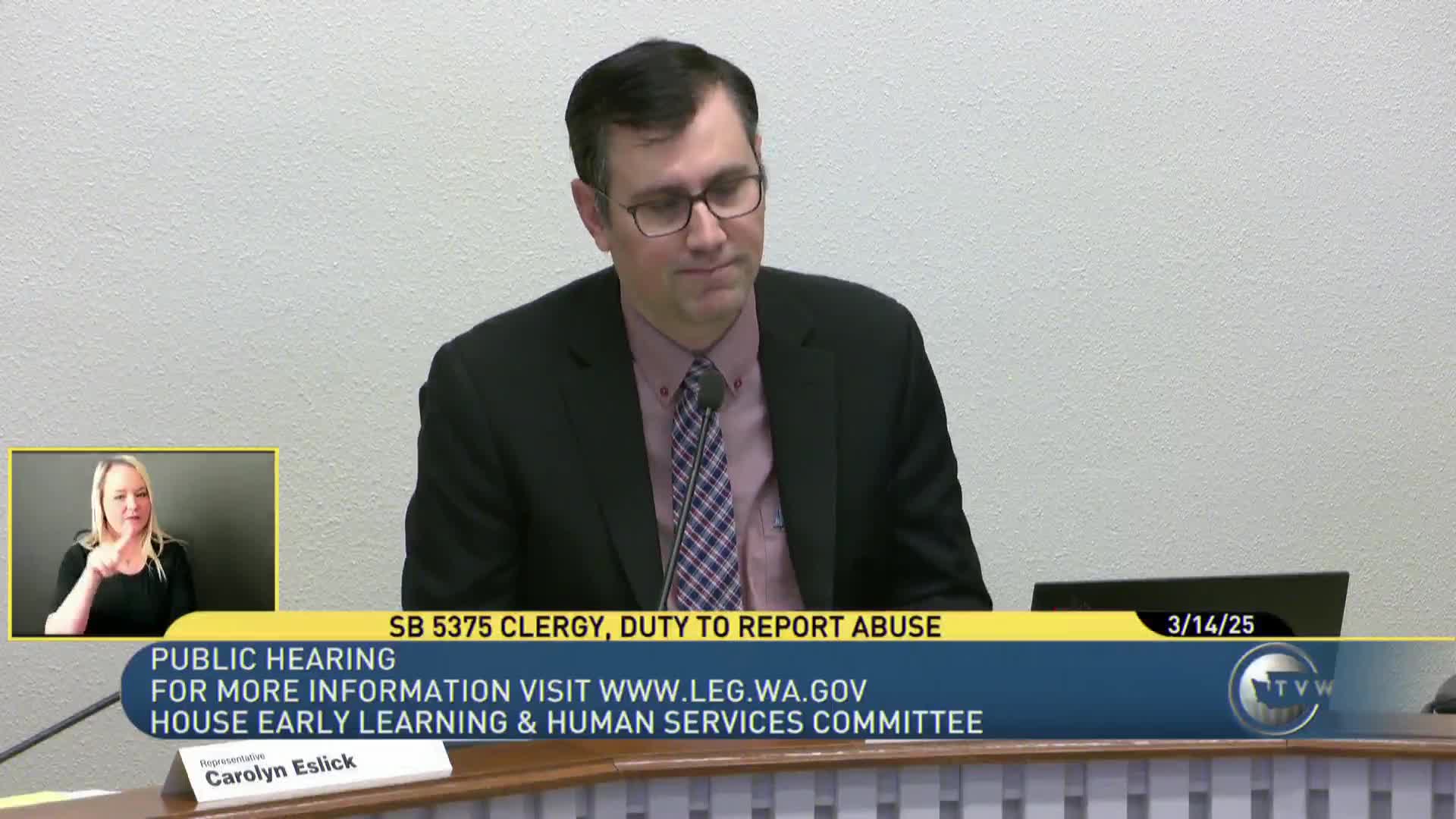Committee takes testimony on bill to make clergy mandatory reporters; sharp split over confessional exemption
Get AI-powered insights, summaries, and transcripts
Subscribe
Summary
State senators and a long panel of survivors, religious representatives and legal experts debated Engrossed Substitute Senate Bill 5375, which would require members of the clergy to report child abuse or neglect when they have reasonable cause to believe a child was harmed.
State senators and a long panel of survivors, religious representatives and legal experts debated Engrossed Substitute Senate Bill 5375, which would require members of the clergy to report child abuse or neglect when they have reasonable cause to believe a child was harmed.
Committee counsel Luke Wickham explained the bill’s scope: it would add “members of the clergy” to Washington’s list of mandated reporters and defines that term to include ordained, accredited or regularly licensed religious leaders who perform official duties recognized by their faith communities. He said an earlier House companion, House Bill 1211, covered the same ground in a prior hearing.
Sen. Noelle Frame, prime sponsor, told the committee the bill is narrowly focused on protecting children and does not change rules about prosecution. “This bill is not about any one faith community. This bill is about protecting children, period,” Frame said, explaining that the measure would require clergy across faiths to report and noting Washington is one of five states that currently do not include clergy in mandated‑reporter law.
Supporters included survivors and advocacy groups who said secrecy within religious settings has enabled serial perpetrators. Mary Dispenza, who testified that she was abused as a child and that church secrecy protected a priest, said: “Priest penitent privilege protected him and left little girls in harm’s way.” Several student witnesses and young survivors urged passage without an exemption.
Opponents centered their remarks on the sacramental seal of confession and free‑exercise concerns. The Washington State Catholic Conference supported clergy as mandatory reporters generally but asked for a narrow exemption for sacramental confession (the private sacrament between priest and penitent) so that the sacrament’s confidentiality is not compromised. Conference legal counsel recommended conditional language modeled on other testimonial privileges so clergy would be mandatory reporters in most contexts but retain a narrowly defined confidentiality for sacramental confession.
Retired attorney Theresa Schremp warned committee members that singling out clergy for unequal treatment could raise First and Fourteenth Amendment questions and said the bill as drafted treats religious speech differently from secular testimonial privileges.
Committee counsel and the sponsor noted the bill’s stated purpose is child protection; several witnesses described investigative reporting by journalists and survivor advocacy as a motivator for the legislation. The hearing record included repeated appeals from survivors and witnesses that the confessional seal has been used to conceal abuse in some faith communities.
No motion or vote appears in the transcript; the committee heard multiple panels in a lengthy public hearing and closed the record for that session.
